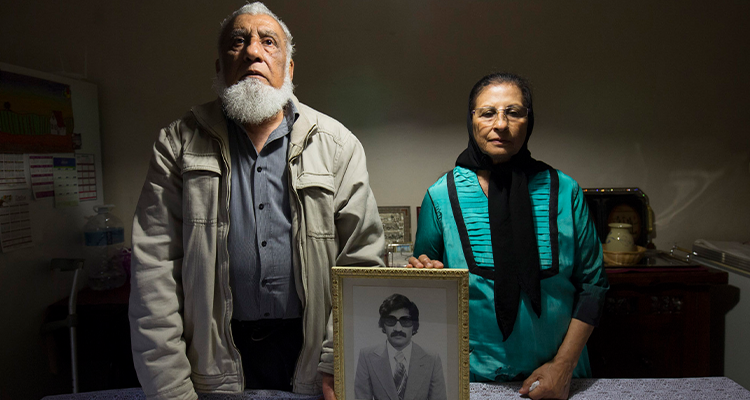
The family of anti-apartheid activist Dr Hoosen Haffejee is relieved at the inquest court finding into his death that ruled out suicide, writes Nabeelah Shaikh.
Forty-six years after Dr. Hoosen Mia Haffejee was found hanging in a police cell at a police station in Durban, there is finally closure for his family on the cause of his death – evidence during an inquest showed he was murdered by apartheid-era cops.
The Pietermaritzburg High Court has ruled that Haffejee’s August 3, 1977 death was not self-inflicted, a contradiction to the earlier finding of the initial inquest held into his death.
Haffejee was found dead in the cell at Brighton Beach Police Station after he was detained and interrogated by Special Branch police officers on suspicion of his involvement in anti-apartheid activities. He was found with his trousers twisted around his neck, suggesting a possible “hanging.” An inquest held by the government at that time, ruled that nobody could be held liable for Haffejee’s death and that the cause of his death was likely suicide. However, since the original inquest and following proceedings by the Truth and Reconciliation Commission, the matter was referred to the National Prosecuting Authority for the reopening of the inquest. The inquest was then reopened, and new additional evidence was presented to the court.
Family spokesperson and lawyer, Anwar Jessop, told Al-Qalam that the Haffejee family is elated with the outcome of the case.
“They finally got the result that they wanted and it’s taken 46 years for them to get here. It’s been a bitter-sweet moment because they’ve had family and siblings that were alive at one stage, and were always in search of answers about what happened to their son and brother. Now, those people are not here,” said Jessop.
Jessop said the Haffejee family refused to accept that their brother committed suicide.
“They refused to accept that he committed suicide and Hoosen’s brother said very clearly in court when he testified that, as Muslims, it’s something that is totally against our religion for him to do that and Hoosen was quite strong-minded in his faith. He would never do that. He would never have ever taken his own life,” said Jessop.
He said they were pleased that after more than four decades Haffejee’s name and that of his family has finally been cleared.
“It was quite clear that Haffejee was murdered from all the evidence that was presented. He’s been vindicated and that is important to the family. Unfortunately due to the cover-ups of the apartheid magistrates, they overlooked some of the important evidence that was previously presented to them. The initial inquest was a total sham,” said Jessop.
Haffejee, who was just 26 at the time of his death, was a dentist working at what was formerly known as the King George Hospital. He was on his way to work when he was abducted by Special Branch Police officers.
“In reaching this decision, Judge Zaba Nkosi considered the evidence from medical experts disputing that Haffejee’s death was self-inflicted, the testimonies of other detainees who also endured interrogations by the SA Police Security Branch, and an inspection in loco of the crime scene, where an expert had reconstructed the scene,” said NPA spokesperson, Natasha Ramkisson-Kara.
The court judgment states that Haffejee’s cause of death was a result of two possibilities. He either died following a cardiac incident while under torture or Haffejee died from a ligature constriction applied by the Security Branch members either while he was less conscious, unconscious, or debilitated after torture.
Ramkisson-Kara said when Judge Nkosi overturned the findings of the initial inquest, Nkosi referred to the first inquest as ‘pitiful, sub-standard and riddled with bias.’
He concluded that Haffejee’s death was not self-inflicted.
“He recommended that the surviving members of the police security branch as well as others, be held responsible for Haffejee’s death,” said Ramkisson-Kara.
Ramkisson-Kara said senior State Advocate Denardo MacDonald represented the NPA in the inquest proceedings and the NPA welcomed the findings of the inquest court. “This is an example of the NPA’s TRC Component’s efforts in addressing the atrocities of apartheid crimes; and getting justice for the victims and their families,” said Ramkisson-Kara.
The Human Rights Foundation and Jessop said they would monitor the situation to see if the recommendations of Judge Nkosi are followed.
“We wish to pay tribute to the courage and commitment of Hoosen Haffejee, and to the cause and ideals for which he gave his life. While some measure of justice has now been achieved in the matter of his death, he will surely not rest easy until truth and justice prevail in the many unresolved cases in which his fellow activists gave their lives,” said the HRF spokesperson, Kholekile Mnisi.











